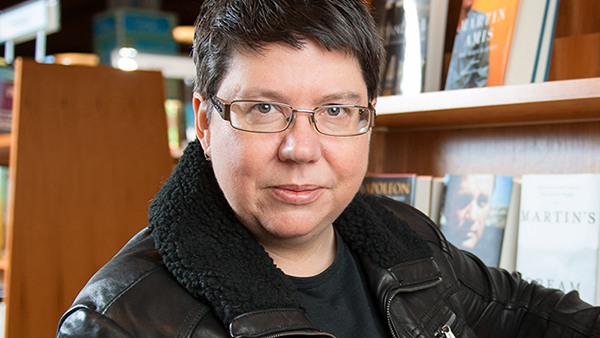
When Inuit writer Mini Aodla Freeman published Life Among the Qallunaat in 1978, she couldn't figure out why no one could find her book in the bookstore. The publisher had done a print run of 3,000 copies, so why did it appear not to exist?
It turns out the federal government's Department of Indian Affairs bought the entire run and threw it in cold storage. Perhaps they thought they were helping the publisher, providing a subsidy of sorts for a product that might not sell.
Freeman was understandably devastated. What's the point of writing a book no one reads?
"We discovered that from 1968 to the mid-1980s, the government unofficially bought up whole print runs of Inuit books and put them in their basements," said U of A English and Film Studies professor Julie Rak, who along with department colleague Keavy Martin, edited the re-release of Life Among the Qallunaat.
"We talked to an anonymous government agent who told us, 'yeah it happened to all of them,'" said Rak. "So we're going to go to the archives and pull out everything we can and tell everyone involved-including the Canadian public, because they deserve to know."
She says there is evidence suggesting the government did the same thing with Inuit sculptures and prints. "They never consulted the Inuit, which is very common with the way Northern and Indian Affairs operated at the time."
Getting to the bottom of this cultural blunder is just one of the causes this newly named Killam Annual Professor is working on. If there is a common thread in her work, it's bringing attention to unheralded or suppressed stories. Whether it's the work of ordinary people trying to make their voices heard, or authors contesting the accepted version of events, Rak fights for the literary underdog.
"Often I'm doing work outside of the literary context to find out what these other kinds of cultural producers have to tell us," she said.
She even sees the Killam Professorship-awarded at the U of A since 1991 for outstanding scholarship, teaching and creative activities-as a kind of vindication.
"I have a good reputation internationally, but in my own university I was unknown as a researcher, and so it means a lot to me that my efforts were honoured inside my own institution," she said.
"I'm also only the fifth woman in the Faculty of Arts to ever win the award-maybe the first lesbian as well, I don't know. That's why I applied. I thought it was important to show women can win it."